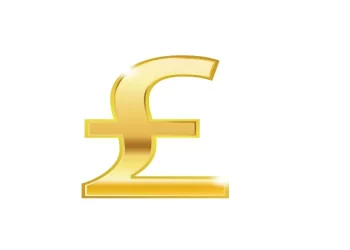In our increasingly interconnected world, understanding currency exchange rates is crucial for anyone engaging in international trade, travel, or finance. Among the various currencies, the U.S. dollar (USD) and the British pound sterling (GBP) are two of the most significant. This article explores the factors influencing the exchange rate between the USD and GBP, the implications for travelers and businesses, and provides insights on converting $10 into pounds.
The Basics of Currency Exchange
Currency exchange refers to the process of converting one currency into another. Exchange rates fluctuate constantly due to supply and demand dynamics in the foreign exchange (forex) market. Several factors influence these rates, including:
Interest Rates: Higher interest rates typically attract foreign capital and cause the value of a currency to rise.
Inflation: Countries with lower inflation rates tend to see an appreciation in the value of their currency.
Economic Indicators: Data such as GDP growth, unemployment rates, and manufacturing output can influence perceptions of a country’s economic strength and, consequently, its currency value.
Political Stability: Nations with less risk for political turmoil are more attractive to foreign investors, which can strengthen their currency.
Market Speculation: Traders’ perceptions and future expectations can drive currency fluctuations.
Current Exchange Rate: USD to GBP
To convert $10 into GBP, one must first consider the current exchange rate. As of the latest data, let’s assume that the exchange rate stands at 1 USD = 0.81 GBP. Thus, converting $10 would yield approximately:
10 USD×0.81 GBP/USD=8.10 GBP
However, exchange rates are not static. They change frequently, influenced by market conditions. Therefore, it’s crucial to check real-time rates, especially if you’re planning a transaction.
Historical Context of USD and GBP Exchange Rates
Understanding the historical context of the USD and GBP exchange rates can provide valuable insights into their current values. Over the years, the exchange rate has experienced significant fluctuations.
Historical Highs and Lows:
In the early 1980s, the dollar was particularly strong, with rates nearing 2.4 USD for 1 GBP.
In the aftermath of the 2008 financial crisis, the pound fell sharply against the dollar, reaching lows around 1.4 USD for 1 GBP.
Long-Term Trends:
Historically, the pound has been stronger than the dollar, although this has varied considerably over time.
Recent years have seen the pound depreciate due to factors such as Brexit and economic performance.
Economic Events:
Key events such as the Brexit referendum in 2016 and the COVID-19 pandemic have significantly impacted exchange rates.
Economic recovery or instability can also influence currency value.
Factors Influencing the Current Exchange Rate
As mentioned, multiple factors play into the current exchange rate between the USD and GBP. Let’s delve deeper into these influences.
Interest Rates
The Bank of England and the U.S. Federal Reserve set interest rates, which can significantly impact the value of their respective currencies. When one country raises interest rates while the other maintains lower rates, capital tends to flow towards the country with the higher rates, increasing demand for its currency.
Inflation Rates
Inflation affects purchasing power and, consequently, currency value. Countries with low and stable inflation typically see their currency appreciate over time. The U.S. and the UK both monitor inflation closely as it can indicate economic health and influence monetary policy.
Political Stability and Economic Performance
Political events, policies, and economic performance can all sway investor confidence. For example, the stability of the UK government and its economic policies can affect the pound’s value relative to the dollar.
Global Economic Trends
Global trends, such as trade relationships, commodity prices, and international economic policies, also play a significant role in currency valuations. For instance, if the U.S. economy is booming while the UK is struggling, the dollar may strengthen against the pound.
See Also: Can You Use US Dollars in Hong Kong?
Converting Currency: Where to Exchange USD for GBP
If you are planning to convert $10 into pounds, there are various avenues to do so:
Banks: Most banks offer currency exchange services. However, they may charge a fee or offer a less favorable exchange rate.
Currency Exchange Services: Dedicated currency exchange services can offer competitive rates, but it’s essential to compare rates and fees across different providers.
ATMs: Using an ATM in the UK to withdraw GBP can sometimes yield favorable exchange rates. However, be aware of any foreign transaction fees that may apply.
Online Platforms: Numerous online platforms allow for currency conversion, often at competitive rates. Always check their fees and rates.
Practical Considerations for Travelers
When traveling to the UK, knowing how to manage currency can save you money and make your trip smoother. Here are some tips:
Plan Ahead
Before your trip, research the current exchange rate and plan your budget accordingly. This knowledge can help you decide how much money to exchange beforehand.
Avoid Airport Exchange Counters
While convenient, currency exchange at airports often comes with high fees and poor rates. Try to exchange your currency beforehand or use ATMs in the city.
Use a Credit Card
Many credit cards offer competitive exchange rates for international transactions. However, check if your card has foreign transaction fees.
Be Aware of Scams
When exchanging money, be cautious of scams, especially in tourist-heavy areas. Always use reputable exchange services.
Conclusion
In conclusion, converting $10 into pounds involves understanding the dynamic nature of currency exchange rates influenced by multiple economic factors. With current rates approximately at 1 USD = 0.81 GBP, $10 would convert to about £8.10. However, as rates fluctuate, it’s crucial to stay informed about the factors that influence these changes.
For travelers, businesses, and investors, understanding how to navigate currency exchange can make a significant difference. By staying updated on economic trends, planning ahead for currency conversion, and utilizing the best exchange options, one can effectively manage currency risks and make informed financial decisions.
Related Topics:




























